Covid-19: Bristol community surge testing explained
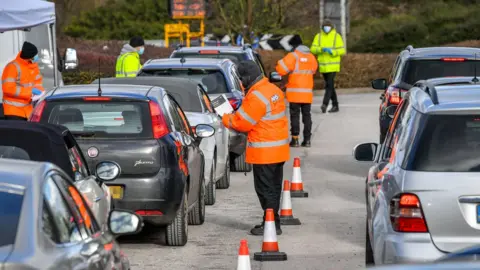 PA Media
PA MediaAdditional testing for the mutated variant of Covid-19 has been rolled out in Bristol and South Gloucestershire, with people "strongly encouraged" to get tested even if they do not have symptoms. Here's what you need to know.
What is the purpose of surge testing?
Surge testing is the roll-out of additional community testing of people who do not have any coronavirus symptoms.
It aims to help scientists and public health officials learn more about the mutated Covid-19 variant found in Bristol and South Gloucestershire.
It will also help reduce the spread of infection by finding asymptomatic cases and prompting people to self-isolate.
What are they testing for?
Public Health England (PHE) have confirmed 11 cases in Bristol were the new Kent variant with the E484K mutation, which has already been seen in the South African and Brazilian variants.
Christina Gray, director of public health for Bristol, North Somerset and South Gloucestershire, said cases were first picked up as part of routine sampling.
This testing aims to identify any further cases of the new mutation for "scientific teams to stay ahead of the virus", Ms Gray said.
Who needs to get tested?
Anyone over the age of 16, who does not have any symptoms of Covid-19 and who lives or works in one of 24 postcode areas can get a test.
If you have symptoms of Covid-19 you should book a coronavirus test in the normal way via the government website.
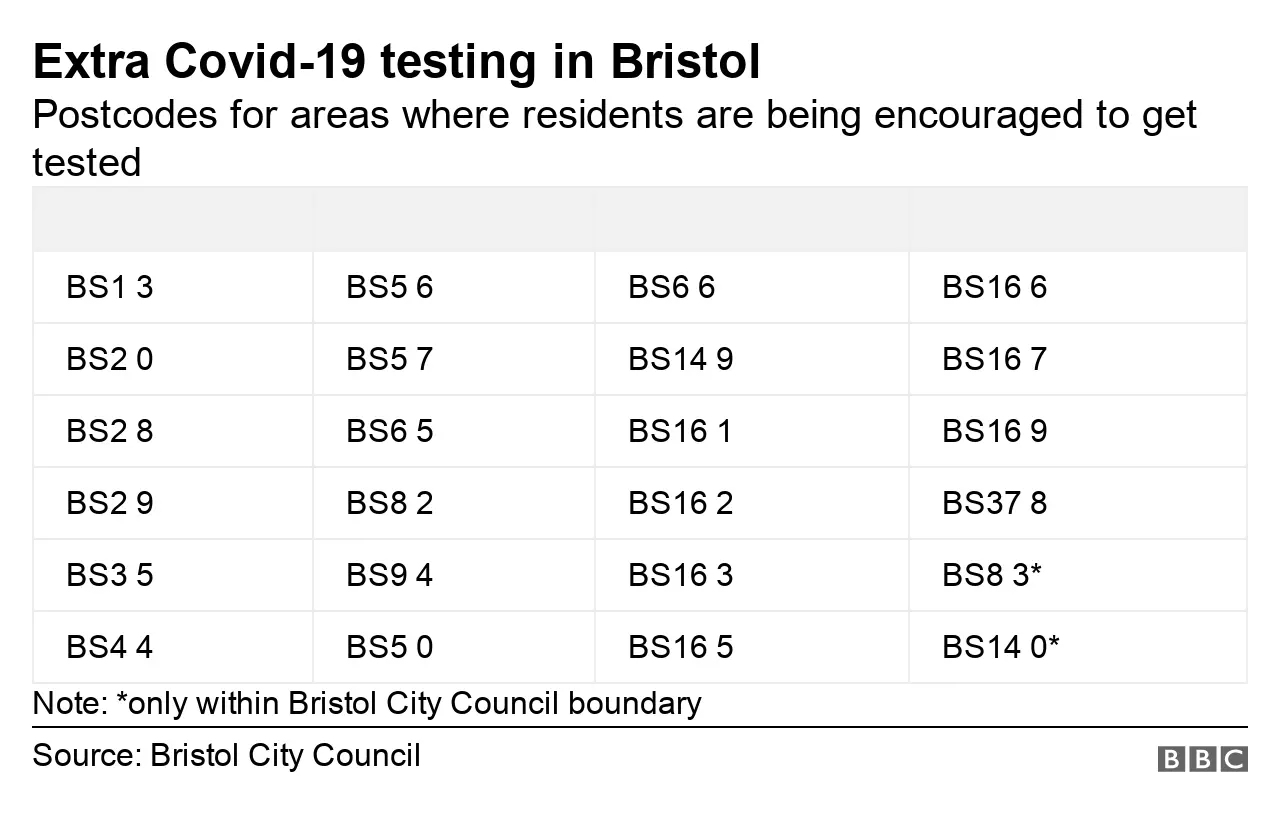
Has the mutation been found in those areas?
Bristol City Council said it would not give locations of the cases, but the listing of an area does not mean the variant is necessarily present in that postcode.
Where can I get a test?
Adults who live or work in the specified postcode areas are being asked to take one test in this two-week period of additional testing.
They can go to any of three testing sites which are open seven days a week, without booking, as long as they do not display coronavirus symptoms:
- Bristol and Bath Science Park, Dirac Crescent, Emersons Green, BS16 7FR. 09:00 to 16:00 GMT
- Bristol City Council Testing Centre, 17-18 Wellington Road, BS2 9DA. 09:00 to 15:00
- Imperial Retail Park, Hartcliffe Way, BS13 7TJ. 09:00 to 15:00
From Tuesday an online booking system will go live to enable people to make an appointment at the sites.
Eight libraries in Bristol and South Gloucestershire are also offering a 'collect and drop' service for people to pick up kits to do the test at home.
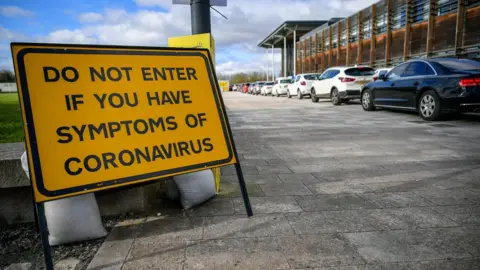 PA Media
PA MediaWhat kind of test is it?
The test is a standard PCR (polymerase chain reaction) test.
It involves a swab of the nose and throat and is sent off to laboratories to be analysed.
When and how will I get the results?
Most people will get their test result the next day, but it may take up to three days and results will be sent by text or email via NHS Test and Trace.
If you test positive, have any symptoms or are contact traced following contact with someone who tests positive, you should self-isolate.
If you receive a negative result you should continue to follow national lockdown guidance.
What's happening with case numbers in Bristol?
Surge testing in Bristol comes as the daily number of coronavirus cases recorded in the city continues to fall.
Ms Gray said: "The good news is that our rates of infection are coming down and we need to keep going on that.
"Our case rates have reduced by 6% which is a really good drop and the south west R rate has now nudged below one."
Ms Gray was keen to reiterate that surge testing was not an outbreak control response, but "an investigatory response" looking to see what they can find and sending that for national analysis.
However she said they do expect the number of identified cases of the mutated Kent variant to increase "as a greater scientific focus is put on actively searching for it".
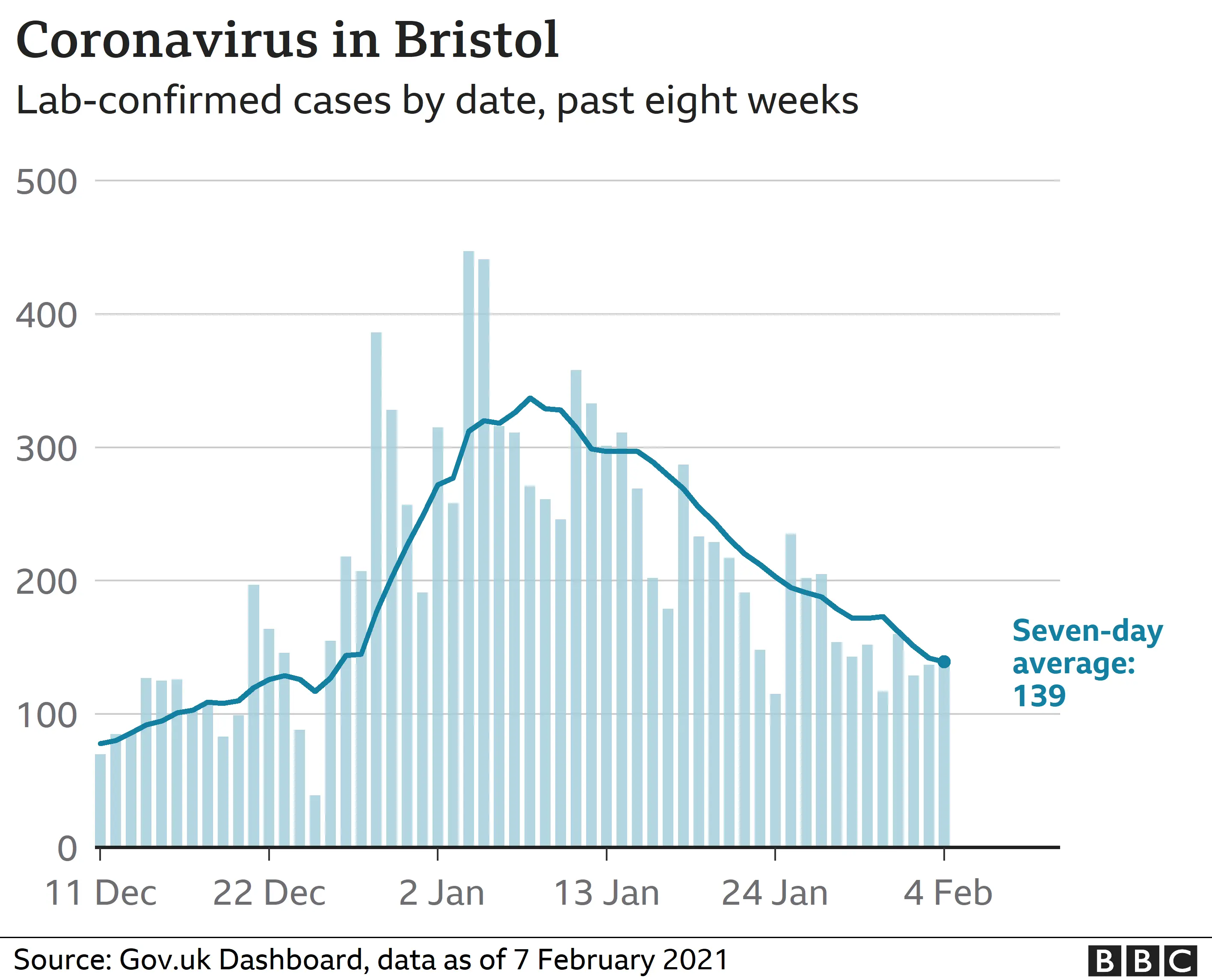
Where can I find out more?
You can find out more about community surge testing on the Bristol City Council website, including a full Q&A.
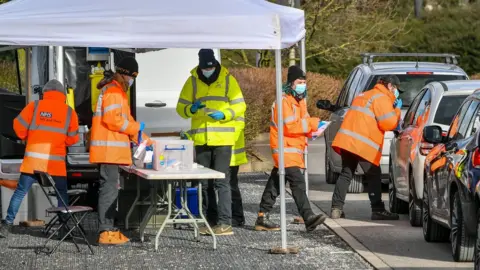 PA Media
PA Media
- LOOK-UP TOOL: How many cases in your area?
- OXFORD JAB: What is the Oxford-AstraZeneca vaccine?
- SYMPTOMS: What are they and how to guard against them?
- QUARANTINE: Will I need to self-isolate in a hotel?


Follow BBC West on Facebook, Twitter and Instagram. Send your story ideas to: [email protected]
